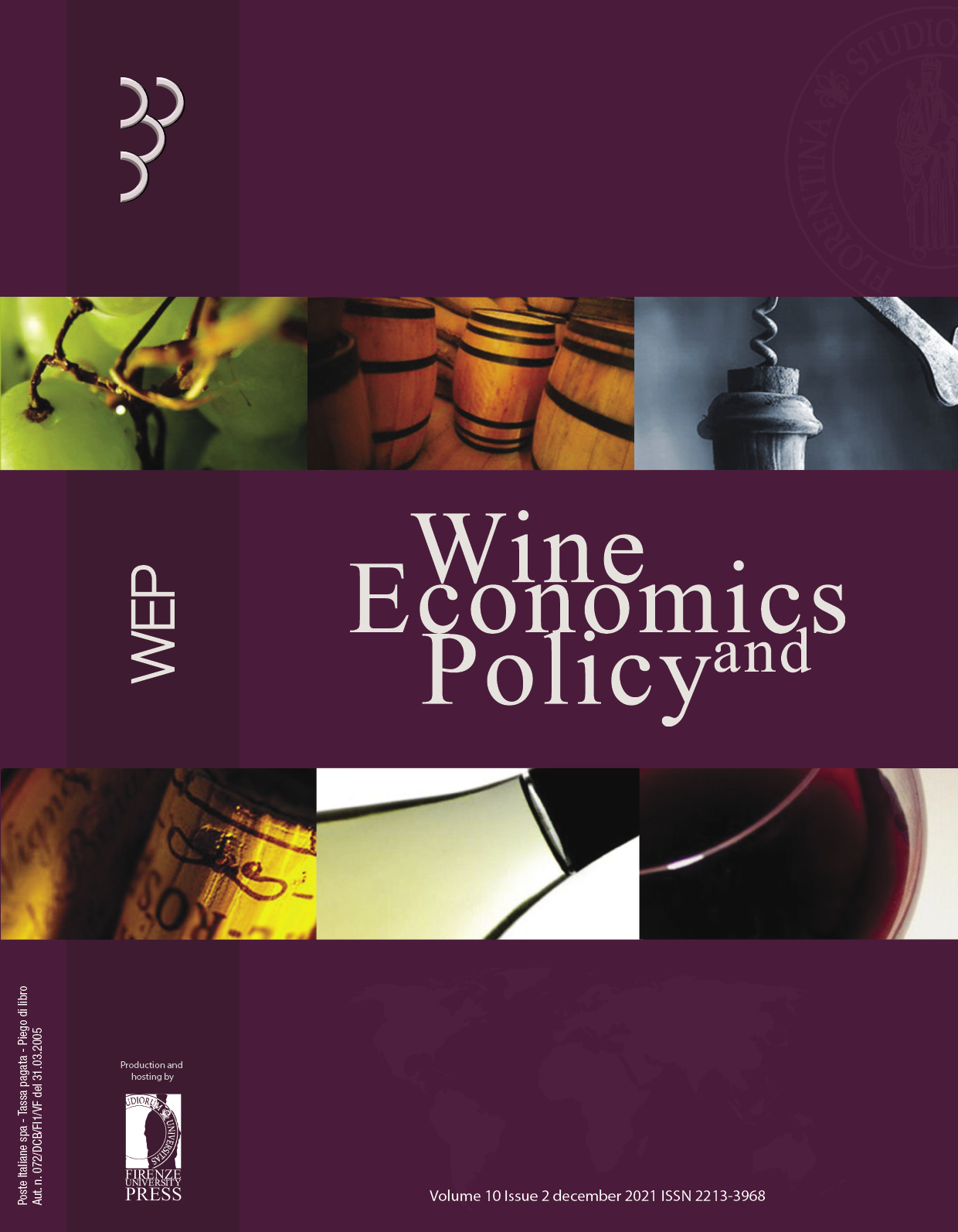Motivation factors for organic wines. An analysis from the perspective of German producers and retailers
Published 2021-11-08
Keywords
- organic wine,
- Germany,
- producers,
- retailers,
- qualitative research
How to Cite
Abstract
This study investigates the motives for producers that inform decisions to convert or not convert to organic wine production as well as the motives for retailers to offer or not offer organic wine and promotion of organic wine from producers’ and retailers’ perspectives. In total, 100 semi-structured in-depth interviews with 25 different types of retailers, 50 organic wineries and 25 non-organic wineries were conducted and analysed using content analysis and grounded theory. Additionally, the wine offers of 25 stores were analysed to develop an understanding of the distribution and promotion of organic wines. Producers choose to switch or not to switch to organic farming for primarily altruistic reasons. Because organic wine producers do not specifically focus on the organic nature of their wines in their communications, this attribute is typically disregarded by retailers and consumers during their wine-buying decisions, which undermines the growing demand for organic wine. There are significant differences between wine-growing regions in Germany and their vine cultivation conditions due to weather, the steepness of slopes and the attitudes towards converting conventional wine production to organic wine production. Missing knowledge and a low demand for organic wines are barriers for retailers to focus on organic wine. To our knowledge, this is the first study to investigate organic wines from numerous producers in every wine-growing region in Germany and various retailers in Germany. The focus on communication shows a lack in the knowledge transfer along the value chain of organic wine. Therefore, this study fills a research gap and provides valuable practical insight into the organic market for the wine industry and the scientific community.

